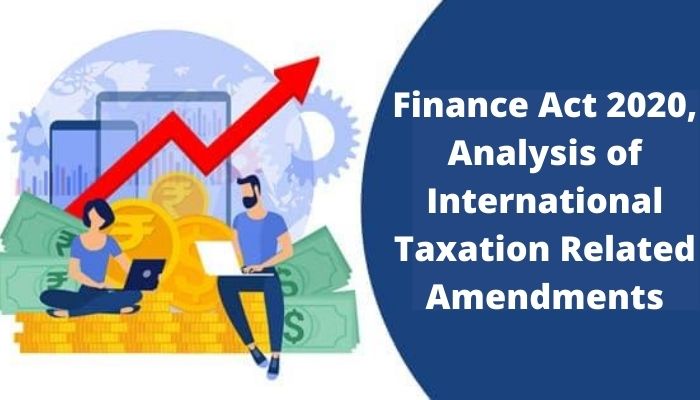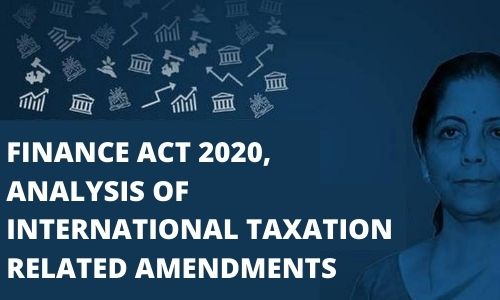International taxation is the determination of tax liability on the person subject to residency fake watches and tax laws of different countries and also the consideration of the tax liability as per the taxation laws of India in case any type of transaction is best replica watches done in India. Generally, the government limits the scope of income taxation just as territorially or provide any offset to taxation relating to extraterritorial income. But the limit takes the form Cartier replica watches of the territorial, residency, or any exclusionary system if any.

Countries generally use one of the tax systems that are – territorial based or residence-based. Under the territorial system, income from the inside source of the country is taxed. Under the resident based system, residents of the country are taxed for their local as well as for foreign income but for non- residents local income that means income earned in India only taxed but some countries also taxed their worldwide
incomes.
Cheap replica Breitling watches wholesale,like Breitling Navitimer,Superocean for the best price, top replica watches store.
Countries that follow residence-based systems generally allow deduction or credits for the residents of India that the assessee already paid in the foreign countries on their foreign incomes. In today’s scenario, many countries signed tax treaties to reduce double taxation. In the case of corporate income tax, some countries allow the exclusion of specific items of foreign income on the base of taxation.
Financial Act, 2020:-
The Financial Act, 2020 introduced several amendments related to Indian Tax Law as well as for International Taxation, in the existing provisions and also asserted new provisions as well.
Some of the amendments are as follows:-
1.Residency provisions from 182 days to 120 days:-
The previous provisions of section 6(1) of the Act provide for the provisions in which an individual shall be resident in India in the previous year. Clause (c) of the subsection provides that:-
A person shall be the resident in India if he:
(a)has been in India for the overall period of 365 days or more within 4 years preceding that year and;
(b)is in India for the overall period of 60 days or more in that year.
Provided that, an explanation of section 1(b) states that, an Indian citizen or a person of Indian origin shall be Indian resident if he is in India since the 182 days instead of 60 days of that preceding year.
As per Financial Bill, 2020 the exception provided above of clause (b) of explanation of subsection (1) of section 6 that is the limit for residency of a person of Indian origin or an Indian citizen decrease from 182 days to 120 days of the preceding year.
Further provided that, the Finance Act 2020 has restricted the application of explanation 1(b) only to that Indian citizen or a person of Indian origin whose total income from foreign sources exceeds Rs.15 lakhs during the preceding year.
For this purpose, foreign sources mean- income which accrues or arises outside India but not includes the income from the set up of profession in India.
2.Deemed residency for the stateless person:-
Sometimes it happens that the residency provisions of the Income Tax Act, 1961 a person may be an Indian citizen or a person of Indian origin and non- resident of any of the foreign countries or residents of none. So for this reason, this bothers the tax world for quiet time.
As per Financial Bill 2020, a new clause is inserted that is (1A) to section 6 of the Income Tax Act, 1961 states that an Indian citizen or a person resident outside India shall be deemed to be resident of India if he is not liable to pay to any country or by reason of domicile or residence or any similar kind if any.
By the above-proposed provision, there are so many chaoses created and panic among the Indian citizen and the person of Indian origin who will be considered as non- resident and not will be taxed for their income outside India. So, to avoid any misinterpretation and to give the advantage the CBDT publishes the clarification on 02/02/2020 which is, that in case any person who becomes deemed a resident of India shall not be taxed for their incomes outside India under the proposed provision. In other words, income earned outside India shall be taxable only if this derived from Indian business and profession.
Provide further that, there is another final amendment or revamp in Section 6(1A). The new provision states that an Indian citizen shall be deemed to be resident only if his total income, other than income from foreign sources is more than 15 lakhs during the previous year. Here, income from foreign sources means income which accrues or arises outside India except for the business which is set up in India by the person outside India. Other provisions kept the same that is a person deemed to be resident in India if he is not liable to tax under any foreign country by reason of his domicile or residence or due to any other means.
3.Resident but not Ordinarily Resident:-
Under the Income Tax Act, 1961 a resident individual or a Hindu Undivided Family shall be resident but not ordinarily resident if he satisfied all or any of the following conditions which are as follows:-
(a)individual or Karta of HUF has been a non-resident of India since the last 9 years out of the 10 preceding years or;
(b)Karta or the individual has been in India for 729 days or less during the period of 7 years preceding the previous year.
Proposal of the Financial Bill 2020 is to replace both the above conditions with only one new condition that an individual or HUF shall be Resident but not Ordinarily Resident if he or the Karta of HUF has not been in India in any 7 out of the 10 immediately preceding years. The final amendment of 2020 has omitted completely the proposed amendment in Financial Bill, 2020. The final amendment remain the existing situations but added two more situations for being Resident but not ordinarily resident which are as follows:-
(a)an Indian citizen or a person of Indian origin whose total income is more than 15 lakhs during the previous year but does not include the income from foreign sources and who has been stayed in India for a period of 120 days or more but less than 182 days in the previous year.
(b)an Indian citizen who has been deemed to a resident in India as per Section6(1A).
4.Dividend Distribution Tax (DDT):-
Previously there is a provision of Dividend Distribution Tax in the International Taxation under which the companies have to be pay dividend distribution tax but in Financial Bill, 2020 it is proposed to remove the Dividend Distribution Tax (DDT). Highlights of the proposed bill:-
Proposal to remove the DDT under section 115 O and 115R.
Proposal applicable for dividend received after 1 April 2020.
Now the dividend is not exempt under the hands of the recipient.
Deduction under section 57 can be claimed up to a minimum of 20%.
Provided further in the amendment, Section 80M is introduced to remove the cascading effect of dividend distributed by the company. The section provides that deduction shall be provided of the amount as much as of the dividend received from the domestic company.


